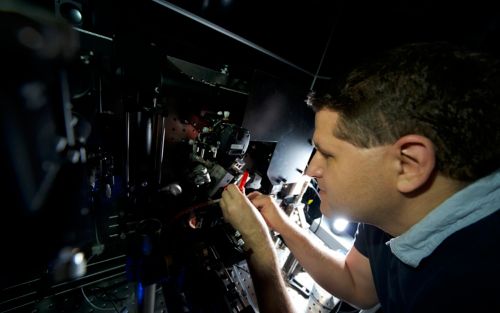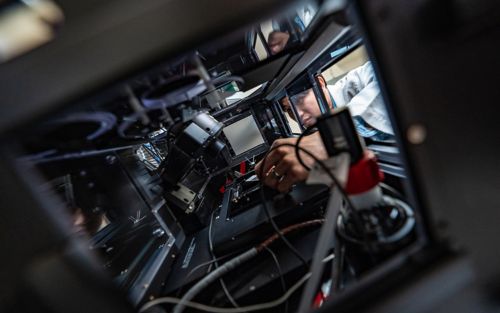St. Jude Family of Websites
Explore our cutting edge research, world-class patient care, career opportunities and more.
St. Jude Children's Research Hospital Home

- Fundraising
St. Jude Family of Websites
Explore our cutting edge research, world-class patient care, career opportunities and more.
St. Jude Children's Research Hospital Home

- Fundraising
Neurons exhibit extraordinary cell biology — from progenitors that divide faster than HeLa cells in a dish to synapses that remodel with unmatched speed to axons that transport cargo across meters. To function, neurons must preserve homeostasis, repair damage and sustain communication over decades to support development, learning and memory. When these systems break down, neurodevelopmental and neurodegenerative diseases emerge.
Studying neurons remains a formidable challenge as they are deeply embedded in tissue, shielded by the skull and governed by dynamic processes that evade traditional histological methods. These barriers have long constrained our ability to shift from description to mechanism. The Division of Neuronal Cell Biology is committed to changing this by decoding the fundamental mechanisms that control nerve cell behavior and their integration into functional circuits.
- What are the fundamental mechanisms that control nerve cell behavior?
- How do these mechanisms control the integration of nerve cells into functional circuits?
- What are the best technological approaches to illuminate the neuronal genome organization, differentiation, migration, synaptic signaling and wiring?
With a technology-driven mindset that harnesses next-generation microscopy, custom-engineered molecular probes and cutting-edge computational analytics, our scientists not only master global advances but pioneer novel tools to unlock previously unsolvable questions.
As an engine for innovation, the Division partners with global leaders in optics, physics, chemistry and data science to co-develop transformative technologies that revolutionize our grasp of brain biology. By fusing core principles of cell biology with powerful, state-of-the-art platforms, we dissect the mechanistic roots of pediatric neurodevelopmental disorders and adult nervous system diseases to expand the frontiers of neuroscience at St. Jude.



